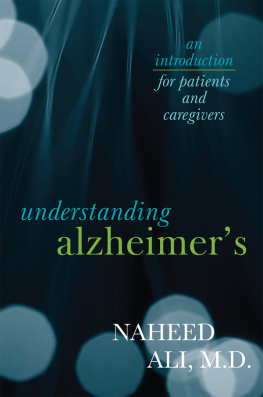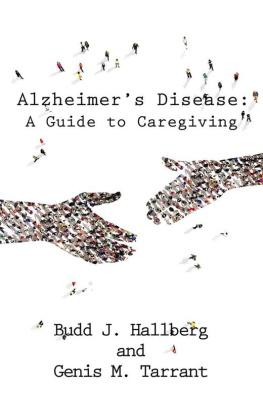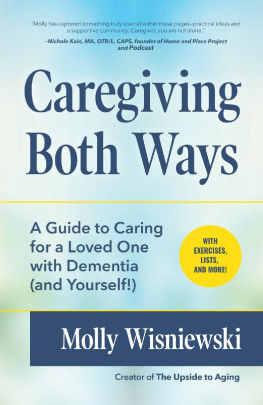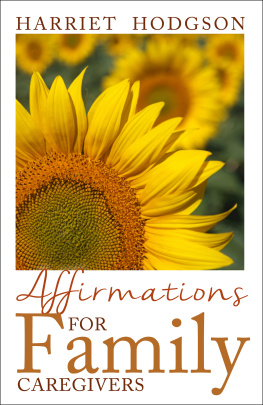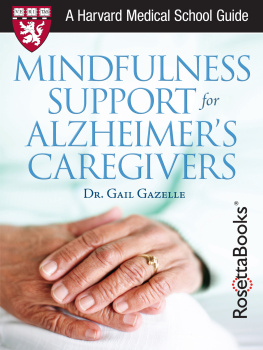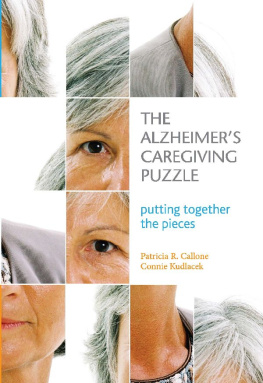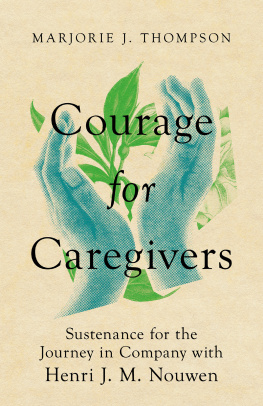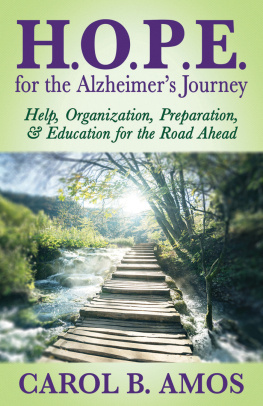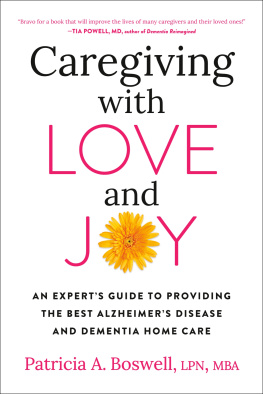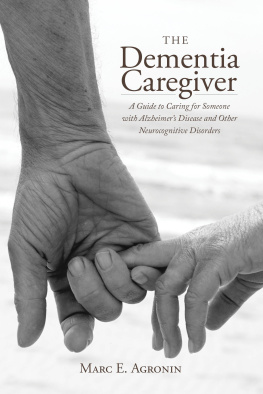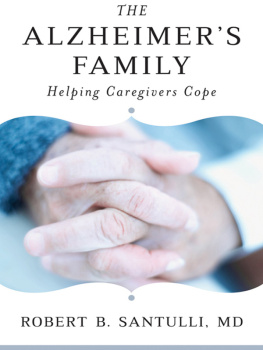THE ALZHEIMERS FAMILY MANUAL
Advice for the Caregiving Journey
Lyle Weinstein
nd edition
Copyright 2015 Lyle Weinstein
All rights reserved
ISBN
BISAC: Health & Fitness/Diseases/Alzheimers & Dementia
Dedication
To my father,
whose journey continues to impact me and my sisters decades after his passing.
To my mother,
whose own journey as a caregiver transformed her.
To the more than 5 million Alzheimers patients in the United States
and the many millions elsewhere, now and in the future,
who can only benefit from the kindness of genuine caregiving.
Table of Contents
Preface
My father started showing signs of Alzheimers Disease (AD) at the age of 54. He hid them, somewhat successfully, for a few years. My mother took care of him at home for many yearsuntil caring for him became overwhelming. He spent his last years in nursing homes with special Alzheimers Disease units.
In 1992, during his illness, I wrote and produced an audiotape, The Alzheimers Family Manual, to try to help other families dealing with AD. I was asked to serve on the Board of the Santa Barbara Alzheimers Association, and in that capacity, I gave talks to caregivers and support groups for a number of years. Not long after my father passed away, I took a break from this work.
Now, more than 20 years later, those of my friends who remember that I had done this work in the pastand are dealing with Alzheimers Disease in their own parentshave started asking me many of the same questions that came up in support groups I worked with: What should they do with the diagnosis and their loved one?
The Alzheimers Family Manual does not purport to be a scientific study of the disease, nor is it a treatise of any kind. The intent was to create a foundation for working with loved ones in the context of this illnessboth patients and caregivers, as the diagnosis and its implications are terrifying. I wanted to help enable caregivers, in particular, and their support networks to quickly get up to speed on how to protect their loved ones who have been stricken with AD, as well as each other.
Knowing that there are commonalities in patients and caregivers, and knowing that there are differences, please use whatever is in here that works for you at that moment. Set aside the rest, perhaps it will prove helpful at a different point in the journey. If you have insights that have proven helpful, please share them with other AD families directly and/or through the Alzheimers Association.
Introduction
My father, Jerry Weinstein, died August 11, 1999 at the age of 70, 14 years after being diagnosed with Alzheimers Disease. He was cared for at home by my mother for the first eight of those years. He spent the next few years in different institutions as we tried to match his changing needs to the available care facilities. His last years were spent in a facility designed primarily for mid-stage Alzheimers patients. He died there; attended by our family, the staff of the facility, and local hospice workers.
In early 1992, my father went through a tremendously difficult period. It was a combination of the progression of his illness and reactions to different medications he was being given. I returned home after visiting with him for a week. I was both quite upset and depressed that the only relief I was able to provide for him was extremely limited and quite temporary.
I thought about what I might say if any of my friends were to call me up with news that one of their parents had been diagnosed with Alzheimers. I sat down and began to type. I tried to put down what I would say about love, caution, fear, and the myriad of other emotions that had arisen for me and my family since my fathers illness was discovered. I imagined myself, perhaps sitting in a quiet corner of a coffee shop, trying to help a friend.
I shared those writings with my siblings and a few close friends. In part, I did so because I needed to have feedback about my own anger and fear, as well as to see whether or not there was anything in the material that might benefit others dealing with the same situation. The result of that process was an audiotape program, The Alzheimers Family Manual.
I began to work with both the Ventura and Santa Barbara County, California Alzheimers Associations as a volunteer, serving at times as a director for each. Because I lived three thousand miles away from my parents, I was unable to be there for them except by telephone and a few visits each year. In trying to help others who were struggling with Alzheimers, I hoped that someone like me, living far from an ill parent, might help others as I was doing, just to keep the cosmic balance.
Each family that encounters AD accumulates their own experiences. My goal in making the audiotape was to organize and pass on my familys experience so that others might learn, more quickly than we did, what can be helpful in supporting the patient and the caregiver on a day-to-day basis, as well as what can be harmful. I wanted to help others to avoid some of the trials and errors that my family went through.
Without a doubt, the Alzheimers Association and the support groups they organize are the most important resource for any family. In most ways, they are a far more important resource than the medical community.
However, my experience was that many people were hesitant to go to the Alzheimers Association or to support groups, particularly when the diagnosis is first made. I am confident that this is a terrible mistake. It is when the diagnosis is first made that people need the clear information and the unconditional support provided by the local chapters of the Alzheimers Association.
It seems that people first want to deal with the situation as privately as possible, often not even disclosing the diagnosis to other family members or close friends. They usually start reading some of the many important books filled with helpful information. Unfortunately, it is often too hard to read these books when your loved one is asking you where the keys are for the 50th time that morning. It is sometimes overwhelming reading a chapter that describes what is to come as the illness progresses. Too many people have told me that they would get to such a chapter, cry and never open that particular book again.
I thought that hearing a voice talking about how to work with the Alzheimers patient on a kitchen sink level might be less intimidating than reading a book. It seemed that an audiotape might be helpful, given how much time people spend in their cars. I tried to lay out basic approaches to help all involved deal with the patient, the caregiver and each other, in a gentle, kind, and sane manner.
The tape was distributed in a limited way. It went to libraries, care facilities, and individuals, as well as different Alzheimers Association local chapters. It was available at talks that I gave at local conferences and at support groups. After my fathers death, I took time for myself and limited my formal activities with the Alzheimers Association.
About fifteen years later, I started getting an increasing number of phone calls and letters from friends who were now encountering AD in their own families. I spoke to many people on the telephone and tried to give as much help as possible. I sent out the remaining copies of my tape. I began looking over my notes from talks I had given to support groups through the years. I decided to gather those notes and thoughts. This book is the result.
As I am now at an age when my father was already ill, these memories and writings take on a different quality. When I exhibit certain patterns of behavior that were always characterized as funny quirks of my father or grandfather, the need for self-examination arises. What also arises, and becomes more pressing, is the desire to pass on to others whatever I have learned that might be helpful.
Next page

